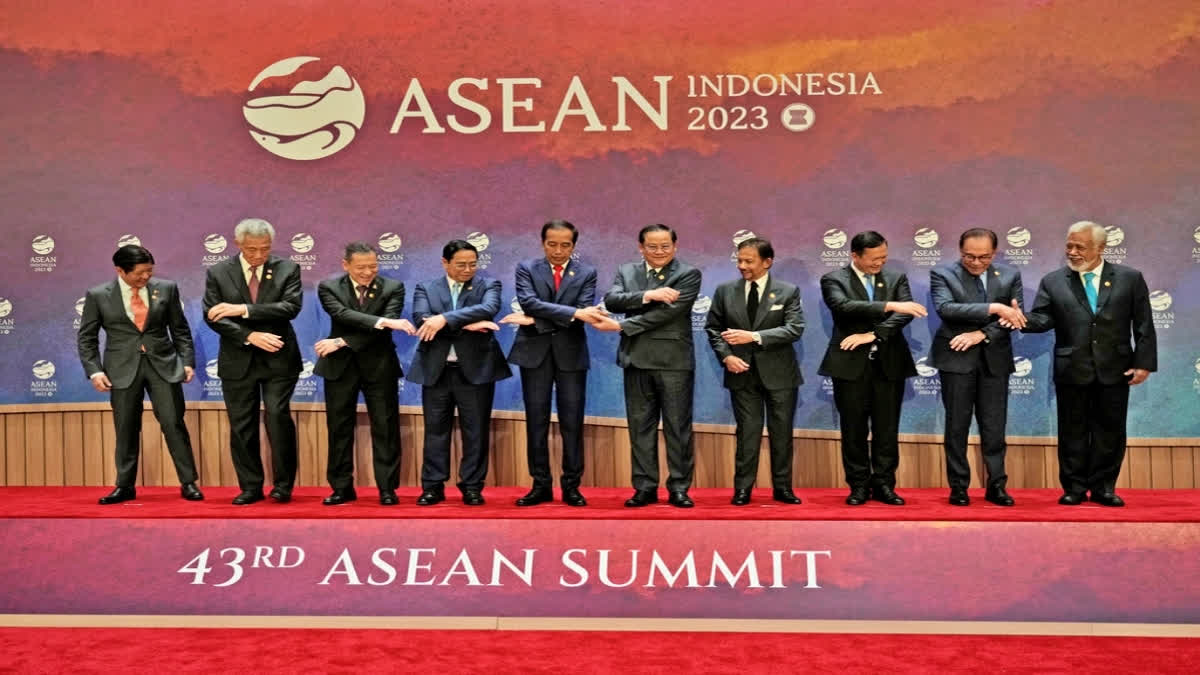New Delhi: For the first time ever, the Association of Southeast Asian Nations (ASEAN) is holding its Indo-Pacific Forum meeting in Jakarta, Indonesia, this week. This meeting is being held simultaneously with the annual ASEAN Summit.
The ASEAN Indo-Pacific Forum meeting is being held days after China released a new “standard map” that showed parts of South China Sea as part of its territory. China is involved in a number of territorial disputes in the South China Sea with Southeast Asian nations. This, coupled with Beijing’s belligerence in the Indo-Pacific, a region stretching from the east coast of Japan to the east coast of Africa, has fuelled speculations about the implications of the ASEAN Indo-Pacific Forum meeting.
The fact of the matter is that, by holding this meeting, the Southeast Asian bloc is only trying to project its centrality in the region without taking any side in the major power rivalry between the US and China.
“It may be narrow to see the ASEAN Indo-Pacific Forum meeting in the context of the new China ‘standard map’ issue,” K. Yhome, Fellow in the Shillong-based Asian Confluence think tank and who specialises on Indo-Pacific issues, told ETV Bharat. “The planning of this meeting has been going on for a long time.”
ASEAN is home to some of the fastest-growing economies with a growing market and a productive population. The Indo-Pacific accounts for over 60 per cent of the global GDP and around half of the global trade. It serves as a significant economic hub fostering trade, investment and innovation. According to Indonesia, the host nation of this year’s ASEAN Summit, the Indo-Pacific Forum is a critical opportunity for the 10-nation Southeast Asian bloc and the Indo-Pacific to come together and chart a course for collaboration and growth.
In fact, it was Indonesia that took the main initiative for drafting the “ASEAN Outlook on the Indo-Pacific” that was released in 2019. The “ASEAN Outlook on Indo-Pacific” is an affirmation of the bloc’s role in maintaining peace, security, stability, and prosperity in the Indo-Pacific This Outlook puts forward an open and inclusive dialogue and cooperation in the ASEAN's priority areas: maritime, economy, connectivity, and the Sustainable Development Goals (SDGs).
While conceding that the new China “standard map” did instil apprehensions among countries of the region, Yhome said that the Indo-Pacific Forum meeting is ASEAN’s attempt to project its centrality in the Indo-Pacific.
He referred to other groupings like the Quad (India, the US, Australia and Japan), AUKUS (Australia, the UK, the US) and Five Eyes (the US, Canada, the UK, Australia and New Zealand) that are working for a free, open, peaceful and secure Indo-Pacific in the face of China’s hegemony in the region.
“But ASEAN is trying to stay at the centre of the evolving geopolitics,” Yhome explained. “ASEAN is playing the role of socializing with major powers like China.” He said that ASEAN, as a regional forum since its inception, has been trying to play a balancing role in major power rivalry.
“The ASEAN Indo-Pacific Forum is newly formed,” Yhome elaborated. “It should not be seen purely from the context of China. Today, ASEAN, with the increasing major power rivalry between the US and China, does not want to be pushed to take sides. The creation of this Forum allows ASEAN to remain at the centre and earn the trust of other major powers.” India, on its part, has always maintained the importance of ASEAN centrality in the Indo-Pacific region.
Also read: With RCEP out of picture, time to review ASEAN-India FTA pact



